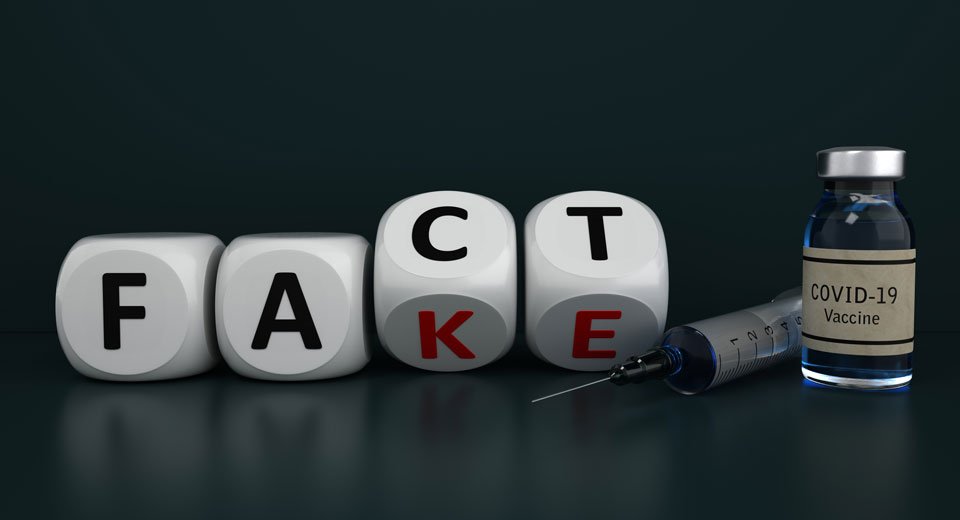I’m young and healthy, so why get the vaccine?

While the omicron variant version of COVID-19 appears to be affecting both vaccinated and unvaccinated people, the vast majority of patients who have been admitted to Cape Cod Hospital and Falmouth Hospital for the disease in recent weeks were unvaccinated. With that in mind, we asked Miguel Prieto, MD, an internist with Cape Cod Healthcare’s Bourne Primary Care to answer the most common questions he hears from unvaccinated patients about their resistance to the vaccine.
I’m young and I’m healthy. Why should I get vaccinated?
“I get asked that all the time and I tell people, ‘yes, it’s true, you are likely to get a milder course. However, if you get the vaccine, you lessen that risk even more and you’re not likely to have a higher viral load that makes you more prone to give it to other people’” Dr. Prieto said.
He acknowledged that the advice has changed a bit since the emergence of the omicron variant, which is circulating most prevalently currently among both vaccinated and unvaccinated people.
“So, the vaccines are not as preventative as protective with this variant, but what they are doing is preventing hospitalizations and death. No question about that. It is a dramatic difference,” he said.
If the new Omicron variant is so contagious and also milder, and I’m just going to get COVID anyway, why should I bother with the vaccine? Why shouldn’t I just wait for natural immunity?
“We want to get vaccinated because we don’t want to die prematurely from this or have significant disabilities from this,” Dr. Prieto said. “There are significant reports of disabilities from the pulmonary viewpoint - trouble breathing and shortness of breath - and heart conditions, like myocarditis. Even though they are not as frequent, there are also cases of cognitive impairment from COVID. Why take the chance on that?”
I have heard that the vaccines are making people sick and some people have died from them.
“Let’s look at the statistics,” Dr. Prieto said. “Over 62 million people have had COVID so far. We’ve had almost 850,000 deaths. That’s a 1.35 percent mortality rate. But if you get the vaccine, the mortality rate is 0.0022 percent.”
The vaccine can have some side effects, he continued. “It can give you a sore arm. You could get the chills and a fever and the muscle aches, and feeling unwell that usually lasts 12 to 36 hours and then it goes away. That happens to approximately 10 to 30 percent of the people who are vaccinated.”
There are other potentially more serious side effects but the chances of experiencing any of them are very rare, he said. They collectively affected less than 0.01 percent of all vaccinated people. For example, there have been reports of myocarditis from the vaccine. That risk of myocarditis is more serious for young people from the vaccine, but conversely more serious for older people if they actually contract COVID-19, he added.
In young people ages 18 to 24, about 0.0006 percent of people in this age group receiving the vaccine experience myocarditis, so the risk is very small, Dr. Prieto said.
Will the new mRNA vaccines change my genetic code so something unforeseen happens down the road?
The short answer is that this is simply impossible, due to the way the messenger RNA vaccines actually work. Unlike previous vaccines, the messenger RNA vaccines do not give people a weakened or dead amount of the virus.
Your genetic code is in your DNA, which is stored in each cell. The DNA is coiled into chromosomes and whenever your cells want to send an instruction, they take the information from your DNA and send it out like a work order. Dr. Prieto compared it to building a house.
“The technology is really a stroke of genius,” he said. “Imagine your DNA is like an architect. It draws these plans and then goes to the engineer and he approves them. Then it goes to the contractor. With those instructions, they build a house.”
The messenger RNA is like those instructions. But the vaccine is actually providing the body with fake blueprints. They are not coming from the architect, meaning they are not coming from the DNA in your cells. They are coming from the vaccine, which creates antibodies. So, if the virus enters your cells, your immune system recognizes the virus from the fake blueprint the vaccine provided.
The vaccine also creates T-cells that are memory cells that will protect you even if your antibody level is low because they will remember the vaccine exposure and it will take less time for them to respond than if you were not vaccinated. That gives the virus less time to replicate and cause damage.
I’m tired of getting jabbed and having a sore arm. Do I really need a booster?
“The studies have shown that the immunity and the protection with the first two vaccines wanes quite a bit over time,” Dr. Prieto said. “You might still get COVID, but the risk of hospitalization and death drops significantly. The booster really boosts your immunity again to the levels prior to the vaccine and it might last longer than the previous two vaccines.”
Dr. Prieto says the waning immunity might have occurred because the first two vaccines were given so close to each other that they may not have ramped up immunity over the long haul. He wouldn’t be surprised if the vaccine schedule changes in the future to reflect new realities of research.
Any last advice on vaccines?
“The fact is that the people who are most harmed by not being vaccinated are people who refuse the vaccine,” Dr. Prieto said. “Why end your life prematurely or get disabled from this when you have something that can prevent that?”
